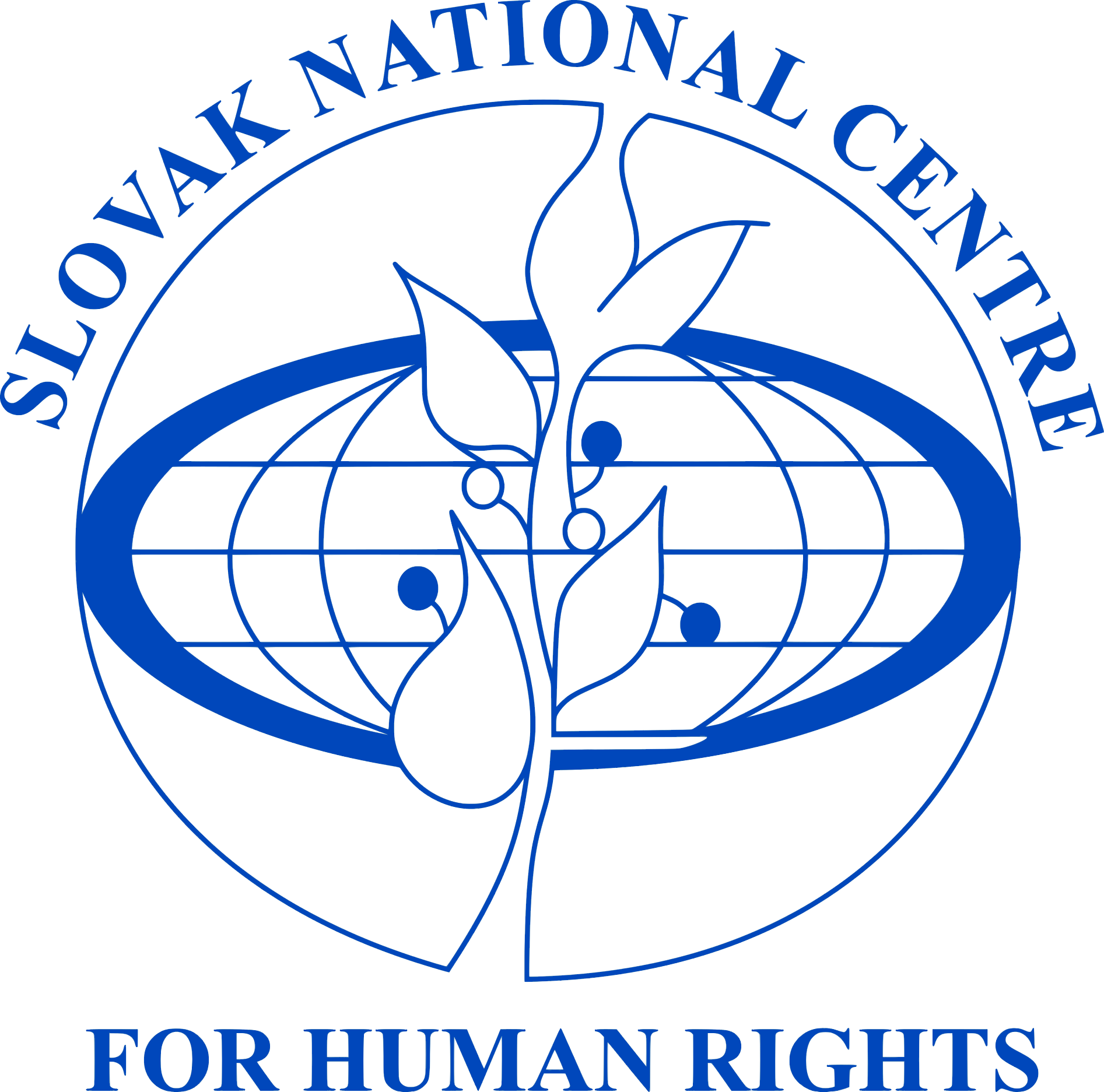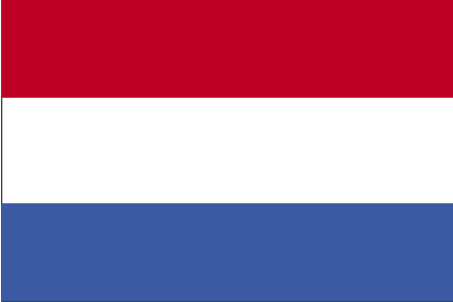SLOVAK NATIONAL CENTRE FOR HUMAN RIGHTS BRATISLAVA 7 OCTOBER
3GPP TSGRAN MEETING 52 RP110626 BRATISLAVA SLOVAKIA MAY 315951990 COLL ACT OF THE SLOVAK NATIONAL COUNCIL (SNR)
A DROP IN THE OCEAN? – CZECHOSLOVAK TROOPS IN
Ú SLOVAK RAD OBČIANSTVA A PRISŤAHOVALECTVA V KANADE
ÚNIA NEVIDIACICH A SLABOZRAKÝCH SLOVENSKA SLOVAK BLIND AND PARTIALLY
B EAR WOLF & LYNX MONITORING IN SLOVAKIA INSTRUCTIONS
Vážený pán dekan,
 Slovak
National Centre
Slovak
National Centre
for Human Rights
Bratislava, 7 October 2019
INPUT OF THE SLOVAK NATIONAL CENTRE FOR HUMAN RIGHTS TO THE REQUEST OF THE OFFICE OF THE UNITED NATIONS HIGH COMMISSIONER FOR HUMAN RIGHTS
Slovak National Centre for Human Rights (the “Centre”) is a national human rights institution established in the Slovak Republic, accredited with status B by the Global Association of National Human Rights Institutions. As an NHRI, the Centre is a member of the European Network of NHRIs (ENNHRI). The Centre was established by the Act of the Slovak National Council No. 308/1993 Coll. on the Establishment of the Slovak National Centre for Human Rights. Pursuant to Act No. 365/2004 Coll. on Equal Treatment in Some Areas and on Protection from Discrimination, and on amendments and supplements of certain acts, as amended (the Anti-discrimination Act), the Centre also acts as the only Slovak equality body. As an NHRI and Equality Body, the Centre performs a wide range of tasks in the area of human rights and fundamental freedoms including the observance of the principle of equal treatment.
The Centre among other powers:
1) monitors and evaluates the observance of human rights and the observance of the equal treatment principle;
2) conducts research and surveys to provide data in the area of human rights; gathers and distributes information in this area;
3) prepares educational activities and participating in information campaigns aimed at increasing tolerance of the society;
4) provides legal assistance to victims of discrimination and manifestations of intolerance;
5) issues expert opinions on matters of the observance of the equal treatment principle;
6) performs independent inquiries related to discrimination;
7) prepares and publishes reports and recommendations on issues related to discrimination; and
8) provides library services and services in the area of human rights.
The Centre submits following answers to the request concerning the report on realizing children’s rights through a healthy environment:
Please share any information or evidence on the impact of environmental degradation, pollution or childhood exposure to hazardous substances on children’s rights, including the right to health.
There are several negative impacts faced by children concerning the environmental degradation, pollution or their exposure to hazardous substances. The most persisting issues is in this regard is conditions of living in Roma settlements. Roma children living in the settlements are facing hazardous living conditions, such as contamination of drinking water and soil due to the open-air defecation and lack of sewage disposal, waste management and engineering networks.
Moreover, some school facilities, community centres and orphanages are located in buildings that are built of material hazardous to health, such as volatile substances in painting and coatings (e.g. benzaldehyde, phenol), asbestos or aromatic hydrocarbons. This is usually due to the materials used for building or location of these buildings in close proximity to infested areas.
In terms of schools, the provision of food services is also problematic. Children are often served food and beverages of low quality containing chemicals, pesticides or being contaminated by bacteria. The situation is not satisfactory, even though the Ministry of Education, Research, Science and Sport of the Slovak Republic issued recommendations and guidelines for selection of suppliers of food and beverages used in school facilities.
Please identify noteworthy and globally significant examples of good practice towards ensuring children’s rights through a healthy environment, including good practices to mitigate childhood exposures to harmful levels of air pollution and hazardous substances, such as pesticides or other toxic chemicals.
Not applicable.
What legal and other measures are in place to ensure that the activities of companies do not damage the environment, either domestically or in other countries?
There are several legal measures concerning the activities of companies and their harmful impact on the environment. All legal measures solely concern the territory of the Slovak Republic and do not directly address these impacts in the international context. Currently, there are 239 laws that regulate the protection of environment in the Slovak Republic. Out of all these laws, only 15 laws (+ relevant implementing regulations) directly or indirectly concerns activities of companies. The Act No. 17/1992 Coll. on Environment, as amended is a core law regulating basic principles, obligations and responsibilities of the companies concerning the usage of the environment and its protection. Remaining laws are regulating very specific areas of the protection of environment such as protection of sources of drinking water, protection against industrial accidents, waste management, environmental management and other.
On the policy level, there is Action Plan for the Environment and the Health of Inhabitants of the Slovak Republic No. V. The policy includes five priority areas and mainly addresses issues such as improvement of the atmosphere, ensuring the sustainable access to drinking water, ensuring the protection against toxic chemicals, improving the sustainable access to healthcare system etc. However, the policy document is silent on the role of the companies in achieving the goals and targets of the action plan as well as on their role in overall protection of environment.
The set of policy measures aiming at decreasing the negative impacts of companies on the environment is the National Investment Plan of the Slovak Republic for the Years 2018 – 2030. This investment plan is an outcome of the adaptation and implementation of the 2030 Agenda for Sustainable Development in the Slovak Republic. As a part of the investment plan, there are twenty-three measures implementing the sustainable goals no. 3, 6, 11, 12 and 15. To close the policy gap and to ensure that companies are not damaging the environment, it would be beneficial to implement the UN Guiding Principles on Business and Human Rights in the Slovak Republic via respective action plan. As of today, there is not such an action plan; however, the Slovak Republic accepted recommendations on its adoption as a part of the Universal Periodic Review in 2018.
Challenges:
The biggest challenges in the application of the legislative and policy measures regulating the protection of environment in relation to the impacts of companies is high level of corruption as well as the lack of understanding of the applicable laws by the companies and ineffective inspections and law enforcement in this regard. In general, there is a high level of corruption in the Slovak Republic. The score of the Slovak Republic in the 2018 Global Corruption Index published by the Transparency International is 50 while the average score of the European Union is 66. The situation has been constantly worsening. It is common for the companies to provide decision-making officers on all levels – local, regional and national with a bribe to avoid meeting strict conditions on emissions, waste management, and protection of water sources or to build object in protected areas. This situation has not improved even by adopting the Anti-Corruption Programme of the Slovak Environment Inspection – the national authority for inspecting the application and implementation of all rules and regulation concerning the protection of environment.
Please provide information on national laws and policies to ensure that companies undertake environmental and human rights due diligence and do not contribute to abuses of children’s rights.
Child labour in Slovakia is prohibited by Article 32 of the Charter of Fundamental Rights of the EU, enforced by the Slovak Labour Code, which prohibits child labour under the age of 15. According to the National Labour Inspectorate, it does not encounter with child labour when carrying out its inspection mandate.
In general, companies in Slovakia do not monitor their impacts on children’s rights and do not carry out human rights due diligence on a regular basis. However, based on the short survey conducted by the Centre last year, many companies operating in the Slovak Republic have adopted policies on corporate social responsibility. As a part of these policies, companies usually commit to not using child or slave labour as well as to prevent and mitigate negative impacts of their activities on the environment, usually through recycling or reducing the waste production. However, only very few companies report on implementation of these commitments publicly.
What measures are in place to fulfil children’s right to participate and be heard in decisions affecting their rights and environment, including their right to remedy in the case of violations of their rights linked to pollution or exposures to hazardous substances?
To ensure participation of all groups of society, especially vulnerable groups, including children, the Government has set the Office of the Plenipotentiary of the Government for Development of the Civil Society. Its office is responsible to strengthen the participation of the society, including young people and children, on policymaking. Children and young people can participate on policymaking on their own or via civil society organisations such as the Youth Council of the Slovak Republic and its regional and local branches. As an example may serve implementation of the 2030 Agenda for Sustainable Development, where special participatory rounds for young people and children where organised. Young people attending the meetings did not have to be members or to be affiliated with any civil society organisation.
Moreover, youth organisation can also contribute to law making via inter-ministerial commenting procedure and comment the laws being adopted, in status of public entities. However, it is concerning that the majority of representatives of youth organisations and their statutory bodies are not young people and usually are older than 30 years of age. This can have detrimental impact on the voice of young people being really heard.
Finally yet importantly, the Slovak Republic adopted the Convention on Access to Information, Public Participation in Decision-Making and Access to Justice in Environmental Matters (Aarhus Convention) ensuring participation in decision-making processes in respect to environment. The Slovak Republic is also bound by the legislation adopted on the level of the European Union, therefore, the Directive of the European Parliament and the Council No. 2003/35/EC providing for public participation in respect of the drawing up of certain plans and programmes relating to the environment was also implemented on the national level. Both of these sources of law acted as a basis for the process of the environmental impact assessment that forms part of every legislative procedure.
6. How are environmental risks to children being monitored and measured in your country?
There is no specific measure or initiative aiming at measuring and monitoring the environmental risks to children. Moreover, there is no systematic research in the field of human bio monitoring (just small projects and initiatives). This is due to the non-existence of relevant action plan.
The only policy measure focusing on monitoring and measuring environmental risks and environmental burden is the State Programme for Remediation of Environmental Burdens for the Years 2016 – 2021. However, this action plan focuses more on the environmental burdens than risk monitoring and does not pay little, if any, attention to the impact of environmental risks to children.
Contact person:
Beáta Babačová, Laurinská 18, 811 01 Bratislava, Slovakia, +421 908 835 932, [email protected]
BIENNIAL OF ILLUSTRATIONS BRATISLAVA 2013 SLOVAKIA SEPTEMBER –
BRATISLAVA SLOVAKIA TOWARDS INTEGRATED RIVER BASIN MANAGEMENT INTERNATIONAL
CHARACTERISTICS OF THE DEVELOPMENT OF NATURALISTIC HUNGARIANSLOVAK BILINGUALISM ILDIKÓ
Tags: slovak, centre, rights, human, bratislava, october, national
- REGULAR MEETING OF THE BURT TOWNSHIP BOARD TUESDAY APRIL
- VEELGESTELDE VRAGEN INSPRAAK WATERPLANNEN EN KRW DEZE LIJST IS
- VERTEBRATE ANIMAL CLASSROOM USE DEMONSTRATION OR DISPLAY SHORT FORM
- PROJEKT USTAWA Z DNIA ……… O ZMIANIE USTAWY O
- THE KILLER’S TEARS BY ANNELAURE BONDOUX QUESTIONS C HAPTER
- NOVEMBER 2018 ALMA PUBLIC SCHOOL 12 SIMPSON ST E
- COMBINED DEGREE RETREAT AUGUST 4 2011 VILLANOVA UNIVERSITY PLEASE
- ME 410L – PRESSURIZED STEAM GENERATOR (PSG) INSTRUCTOR
- ZA ZAPRTIMI OČMI JE BILA ČISTO SAMA LE
- NZQA UNIT STANDARD 27196 VERSION 4 PAGE 3 OF
- CURSO LEGISLACIÓN UNIVERSITARIA LUGAR MAFOREMUNED DURACIÓN 25 HH DOCENTES
- BITÁCORA NÚMERO 1 CUMPLE CON LAS ETAPAS DE
- “BELÇIKA TERÖRE KARŞI YASA ÖZÜRLÜ” PKK VE DHKPC’NIN AB
- 3ZIKLOA ANTES DE LEER 1 ¿ DE QUÉ REVISTA
- FORLAGSAFTALE (FAGLITTERATUR) UDFÆRDIGET PÅ GRUNDLAG AF DEN IKKE OBLIGATORISKE
- MOTHER TONGUEBASED MULTILINGUAL EDUCATION KAGAMITAN NG MAGAARAL SINUGBUANONG BINISAYA
- CITY OF ALBUQUERQUE DEPARTMENT OF FAMILY & COMMUNITY SERVICES
- SEMINÁŘ „PRÁVO A PODNIKÁNÍ V DIGITÁLNÍM VĚKU“ MÍSTO KONÁNÍ
- PONENCIA “TALLER SOBRE REGLAMENTACIÓN NACIONAL” OMC SERVICIOS EDUCATIVOS
- KURS KWALIFIKACJI ZAWODOWEJ DLA ZAWODU KUCHARZ KUCHARZ
- PETA KOMPETENSI INTI DENGAN KOMPETENSI DASAR LAMA DAN BARU
- DOSSIER D’INSCRIPTION FAMILLES ASSOCIATION ENTRE REINS ET SAPINS (AERES)
- 6 TD 11037019 11040284 11213594 OPINIÓN Nº 1662017DTN ENTIDAD
- REGULAMIN REKRUTACJI NA STAŻE U PRACODAWCY „CENTRUM KOMPETENCJI ZAWODOWYCH
- R1 DECEMBER 3 2001 MAYOR GALLUCCIO COUNCILLOR BORN COUNCILLOR
- PLANIFICACIÓN DE TAREAS TODOS LOS ESTUDIANTES PUEDEN MEJORAR SU
- CHEMISTRY SEPARATION OF TWO SOLIDS BY USE OF A
- DRECTANGLE 2 OGSAJAMMIN’ OFFICE USE ONLY CLIENT TRAVEL ITINERARY
- RADNA INAČICA 10 3 2007 GRANICE RIMSKODOBNIH ADMINISTRATIVNIH CJELINA
- VI REUNIÓN DE MINISTROS DE JUSTICIA O DE MINISTROS
 ONTHAAL NIEUWE MEDEWERKER (VERSIE 11102007) NAAM DATUM IN
ONTHAAL NIEUWE MEDEWERKER (VERSIE 11102007) NAAM DATUM IN STATEMENT FROM DEPUTY COMMISSIONER PAUL RUSH ON THE ACTIVATION
STATEMENT FROM DEPUTY COMMISSIONER PAUL RUSH ON THE ACTIVATIONAGTC SAMPLE SUBMISSION STORAGE AND RETRIEVAL POLICY SEQUENCING TEMPLATES
OAVT WEBSITE CLASSIFIED AD FORM LOCATION OF POSITION (CITY
SYLABUS PRZEDMIOTU OCHRONA WŁASNOŚCI INTELEKTUALNEJ LP ELEMENTY SKŁADOWE SYLABUSU
13 Indian Mission of st Thomas the Apostle and
 THREE RIVERS DISTRICT COUNCIL WASTE SERVICES VEHICLE MAINTENANCE
THREE RIVERS DISTRICT COUNCIL WASTE SERVICES VEHICLE MAINTENANCENAME SEPTEMBER 13 2012 Q1 QUIZ 1 REVIEW QUIZ
 MEDIA RELEASE TEN LEGENDS SET TO BE HONOURED BY
MEDIA RELEASE TEN LEGENDS SET TO BE HONOURED BY45 INTRODUCTION THIS REPORT IS A HISTORY OF
 L OS PAÍSES BAJOS LOS PAÍSES BAJOS ES UN
L OS PAÍSES BAJOS LOS PAÍSES BAJOS ES UNRESOLUCIÓN FECHA EMISIÓN TEMA O ASUNTO RESUELTO 822004 30072004
AGRICULTURAL COMPOUNDS AND VETERINARY MEDICINES (ANIMAL FEED) ORDER 2006
 DesigningPrimersforPCR
DesigningPrimersforPCR40 PRIDE & PREJUDICE PRIDE & PREJUDICE THE GLORIOUS
TYPHOID STUDY QUESTIONNAIRE TYPHOID SUSPECTS NOTE INTERVIEWER SUSPECTS
 CURSO CURSO DE AUTODEFENSA PSÍQUICA PARA TENER CUIDADO DE
CURSO CURSO DE AUTODEFENSA PSÍQUICA PARA TENER CUIDADO DELICITACIÓN CONTRATO REDACCIÓN PROYECTOS EDIFICATORIOS Y DIRECCIONES FACULTATIVAS DE
PRILOGA 1 IMENA IZDELKOV IN DEFINICIJE 1 DELNO DEHIDRIRANO
GRADIVO K 5 TOČKI DNEVNEGA REDA PREDLOG SKLEPA O